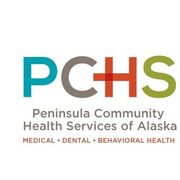5 Ways Menopause Can Affect Your Health

Menopause is the cessation of menstrual cycles marking the end of a woman’s reproductive years. It isn’t a condition, but rather, a natural change in a woman usually occurring around 45-55 years old. While menopause diagnosis occurs when periods have stopped for at least a year, many women experience a host of physical, emotional, and mental symptoms leading up to this time. Talk to your doctor if any of the following effects of menopause are disrupting your quality of life.
What Are the Consequences of Menopause?
1. Reproductive System Changes
The decline in reproductive hormones can lead to issues like vaginal dryness and reduced sexual desire. In some cases, lubricants may help, but patients with persistent symptoms can also talk to their doctor about estrogen treatment.
2. Bone Density Reduction
The reproductive hormone, estrogen, declines quickly during menopause. Because this hormone protects the bones, women are more likely to experience osteoporosis and related fractures after the age of 50. Bone density testing can help you determine your risk, and if needed, you can explore medical interventions to keep your bones healthy.
3. Cardiovascular Effects
 Menopause does not cause cardiovascular disease in itself. Yet, the decline of estrogen could be a risk factor because it helps maintain flexible blood vessels to support circulation. Fortunately, women who are nearing or have reached menopause can continue to maintain healthy lifestyle practices, such as eating well, exercising regularly, and avoiding smoking, to control their risk.
Menopause does not cause cardiovascular disease in itself. Yet, the decline of estrogen could be a risk factor because it helps maintain flexible blood vessels to support circulation. Fortunately, women who are nearing or have reached menopause can continue to maintain healthy lifestyle practices, such as eating well, exercising regularly, and avoiding smoking, to control their risk.
4. Urinary Incontinence
One of the more frustrating consequences of menopause, urinary incontinence occurs when the vaginal tissue loses its elasticity after hormonal changes. Targeted pelvic floor muscle exercises could help, but your doctor may also have recommendations for treatments such as hormone therapy.
5. Mood Changes
The significant hormonal changes that take place during menopause can lead to pronounced mood changes, including depression, even in women who don’t have a history of mood disorders. Lifestyle changes, clinical interventions, or a combination of both may address menopause-related mood changes.
If any symptoms of menopause are interfering with your daily life, talk to one of the doctors at Peninsula Community Health Services. Serving the area of Soldotna, AK, this community health center offers an extensive range of medical and behavioral health services, as well as dental and vision care. Their comprehensive women’s care includes OB/GYN services as well as breast and cervical health. Find out more about their health care options online or call (907) 262-3119 to schedule an appointment.
About the Business
Have a question? Ask the experts!
Send your question

